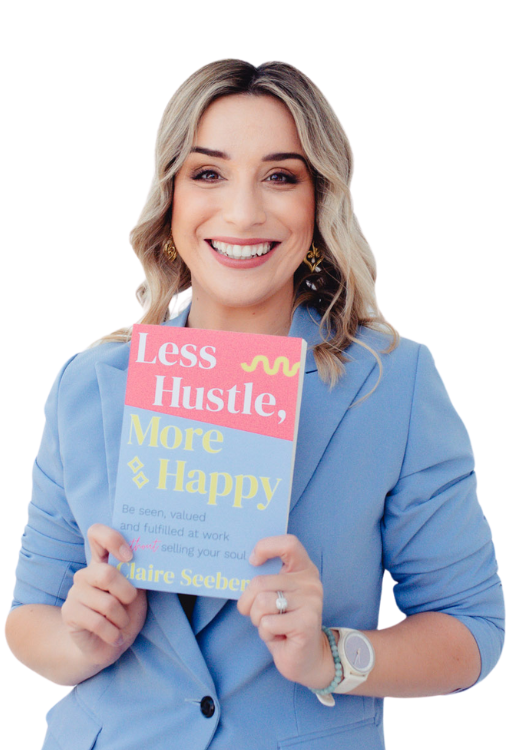You walk into a room and take a seat at the meeting table. Everyone else gradually trickles in ready to get started. They seem so relaxed. So confident. The meeting works its way around the room with everyone sharing what is going on for them - successes for the week, what they are doing really well in, sounding like they know exactly what they are talking about. And you sit there. Sit there. Still sitting there. Waiting for your turn. But not just waiting for your turn to speak. Waiting for your turn when they will find out. They will find out that you’re a fraud. That you’re not capable. That you are an imposter.
Say HELLO to Imposter Syndrome, and welcome to the club of women (and some men!) who experience this every day. Although only formally conceived as a term in the 1970’s, Imposter Syndrome is without doubt a syndrome we have been feeling for years before this. Have you ever had that all-encompassing feeling of self-doubt, often just as you are about to speak, or pitch or present on something and you are just waiting for those around you to realise you are a fake. Sound like you? Then here is your VIP membership love, welcome to the club.
Why do we do this to ourselves? And, where does it come from?
Often, I see women with a fear of putting themselves out there in case they are wrong. A fear of asking for something in case they don’t get it, or are told NO. A fear of not putting their hand up for that promotion just so that they can get some “more experience” first, or another qualification to help them validate that they know their sh*t. WHY? Why don’t we just have faith in our own abilities and the fact that our knowledge and capability is what got us to where we are today, therefore it must be worth something, right?!
I used to be terrible for this, and was the absolute epitome of what Imposter Syndrome stands for. And then one day, I realised something. Not one person actually told me that I couldn’t do something, or that I wasn’t capable. It was all in my head. I was the one who told myself I wasn’t capable.
Imposter Syndrome can manifest itself in many ways, including;
- Being 100% sure you are going to fail at almost anything you set out to;
- Devaluing your experience or expertise because someone else might appear more confident, more experienced, older, wiser, than you;
- Feeling like a fraud and like someone is going to find out about you; or
- Being sure that someone else’s presentation style, pitch ability, confidence with conflict or debate is better than yours.
But the good news is, there is a community of women here to help you beat it. High profile C-Suite executives including Sheryl Sandberg, COO of Facebook have quoted their own Imposter Syndrome before. Even celebrities like Tina Fey and Meryl Streep have opened up about feeling like frauds who were sure they were going to be “caught out”.
So, what can you do to beat Imposter Syndrome??
- Accept that there is no cap on how many people can be awesome, and STOP comparing yourself to others – YOU are also awesome.
- Acknowledge that you had to play some part in your current success – it doesn’t all come down to luck, or whatever other B/S you have been kidding yourself that it is.
- Keep notes of the positive compliments that you receive and read them back when you need reassurance that you aren’t a fraud.
- Realise that at the end of the day we are all just trying to make sense of everything together. If you think you are an imposter, then so is everyone around you!
- Call yourself out – when you experience these feelings, call it Imposter Syndrome. Once you put a name on it, it almost makes it easier to accept. Now squash the self-deprecating thoughts and move the F on!
- Get a wing-woman – whether you have someone in your life you can do this with, or you need to consider seeking out a coach, get someone to help call you out on these feelings and put the actions in place that you need to (in addition to the above) to get you past it.
So often the chances we miss out on are the ones that we never took because we didn’t think we could, think we were ready to, think we were experienced enough, had the qualification that we probably didn’t need, or that we would be successful if we took it. If you need some help getting past Imposter Syndrome, feel free to reach out to me and let’s help you get out of your own way.






